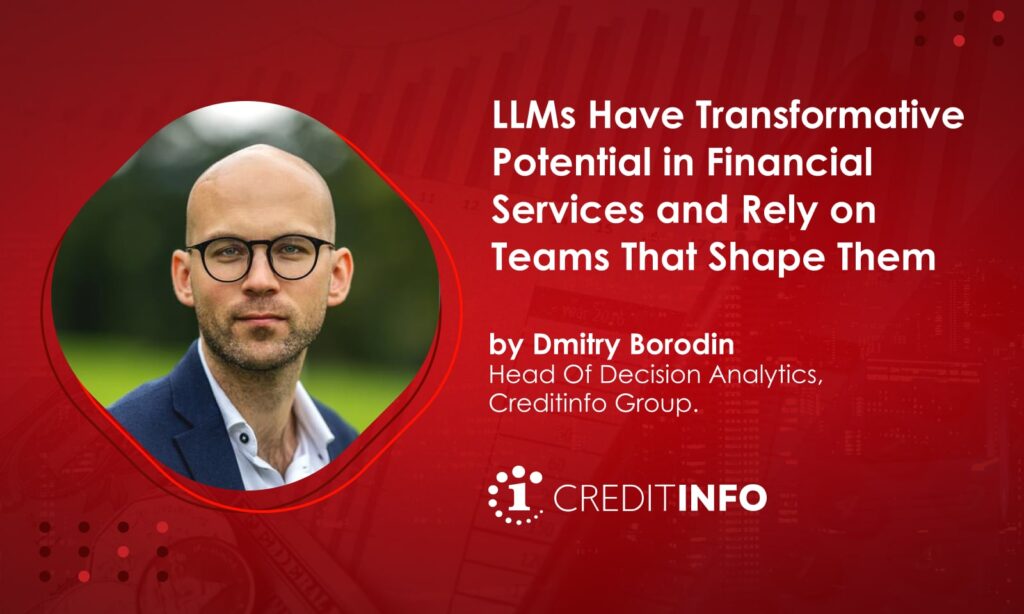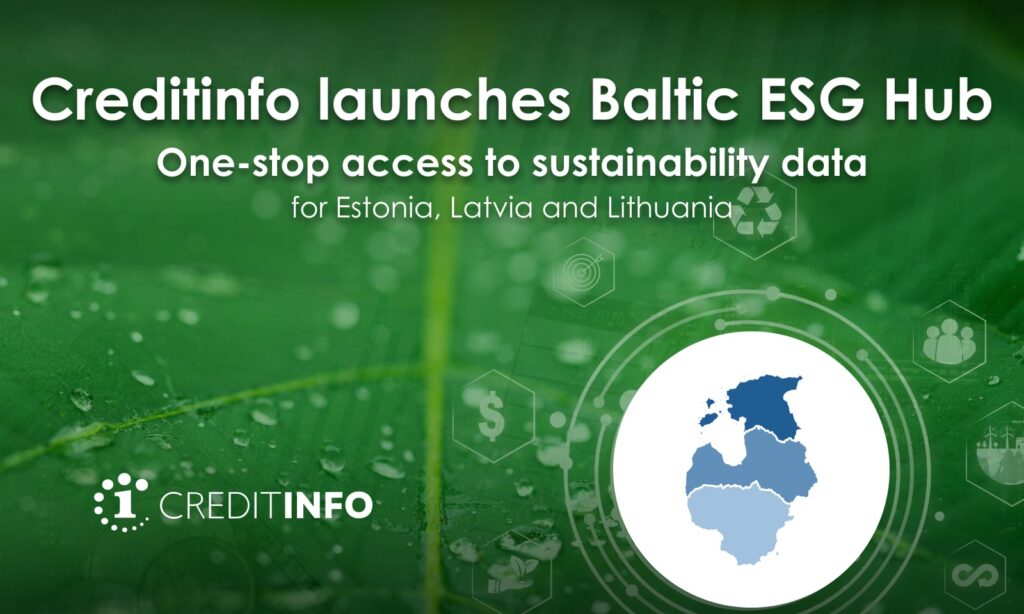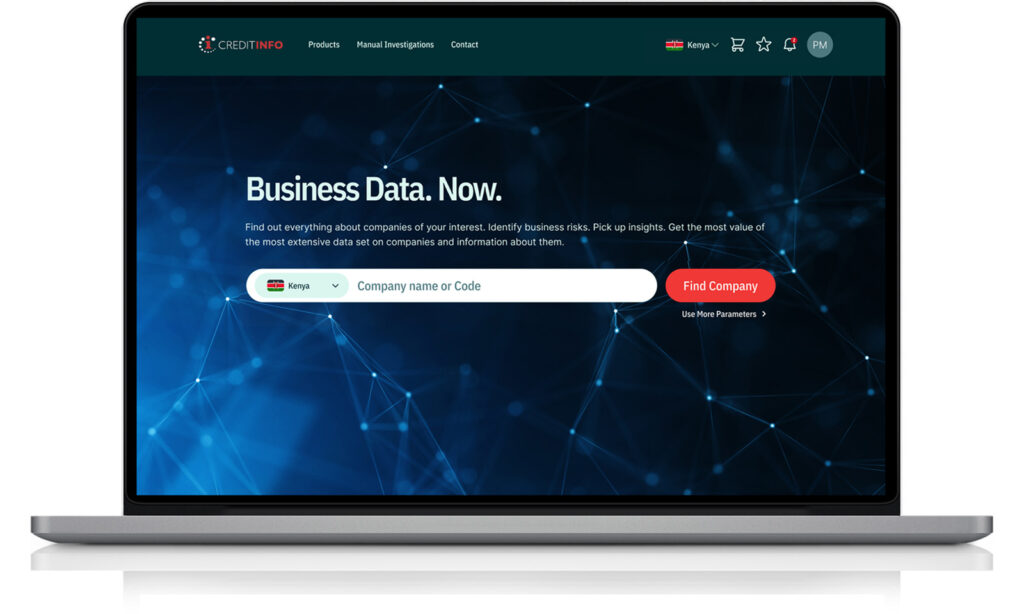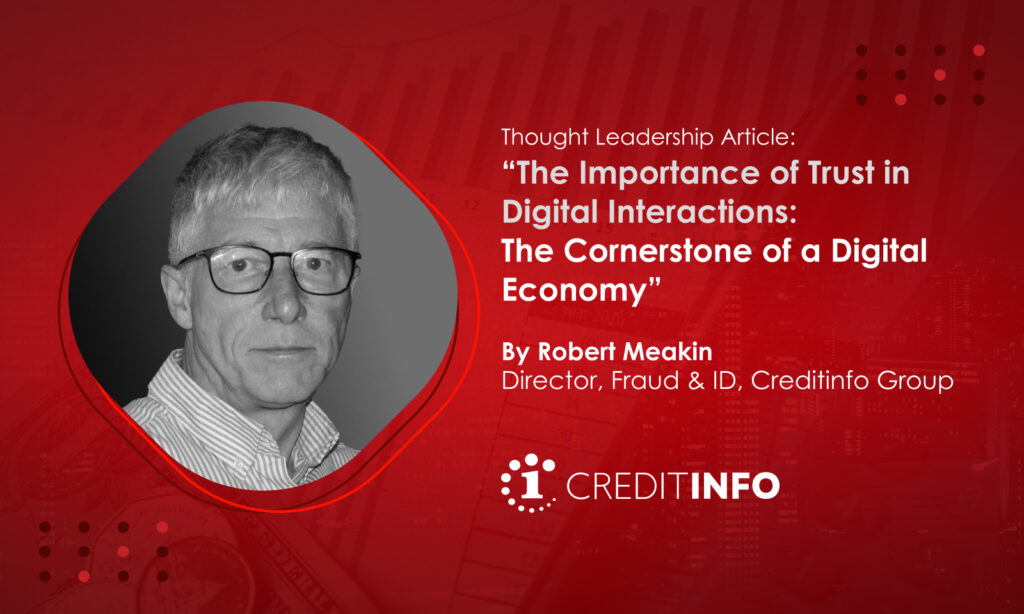Creditinfo and NOTO partner to expand market access to modern fraud and AML controls for banks, fintechs and lenders

Collaboration combines data and tech to strengthen financial crime prevention
12th November 2025 – Creditinfo, a global provider of credit risk and data intelligence, and NOTO, an enterprise platform for fraud prevention and anti-money laundering (AML), today announced a partnership to bring modern, data-rich financial crime controls to banks, fintechs and lenders across multiple markets. The agreement pairs Creditinfo’s in-market coverage and data expertise with NOTO’s adaptable decisioning and case-management platform, aiming to enhance risk controls while preserving a seamless customer experience.
Financial institutions continue to face higher fraud losses, sharper regulatory scrutiny, and a highly dynamic environment that demands greater agility, while onboarding speed expectations continue to rise. The partnership focuses on measurable outcomes – stronger KYC and screening, better detection and monitoring, and streamlined investigations – delivered in a way institutions can roll out and scale without major IT upheaval.
Partnership highlights:
- Market access + enablement: Creditinfo distribution and NOTO technology delivered together, enabling faster rollout
- Outcome focus: Will reduce fraud losses and false positives, strengthen AML readiness, and shorten time from pilot to production.
- Operational fit: Simple to deploy where it will have the most impact then extend across the lifecycle as requirements evolve.
Rob Meakin, Fraud and Identity Director at Creditinfo said: “Clients need practical improvements they can deploy and adapt quickly. By combining high-fidelity risk and trust signals from Creditinfo with NOTO’s agile, high capacity, low latency technology stack we’re giving financial institutions a balanced, risk-aware method of strengthening KYC, screening and monitoring that can be easily tailored to local conditions.”
Ivan Stefanov, CEO and Co-Founder at NOTO, said: “Creditinfo brings the data; NOTO turns it into decisions. Financial institutions don’t need another dashboard—they need decisions they can trust in milliseconds. By combining Creditinfo’s depth of bureau and alternative data with NOTO’s real-time risk decisioning, we give clients a single risk view across onboarding, fraud, and AML. The result: Less financial crime. More business.”
The joint offering is now available via Creditinfo and NOTO. Organisations can contact either company for details.
END.
About Creditinfo
Established in 1997 and headquartered in London, UK, Creditinfo is a provider of credit information and risk management solutions in over 30 countries worldwide. As one of the fastest-growing companies in its field, Creditinfo facilitates access to finance, through intelligent information, software, and decision analytics solutions.
About NOTO
NOTO is a modular, scalable, and adaptable platform for fraud prevention and AML compliance, built by experts to deliver measurable outcomes across the customer lifecycle.
How Economic Uncertainty Manifests in Payment Defaults Across the Baltics

In recent years, the economic environment in the Baltics has become faster-moving and less predictable. Previously, it took 12–18 months after an economic turning point for payment difficulties among companies and individuals to appear in the payment default register. Today, this happens much sooner — often within 6–9 months, and in some sectors even within a single quarter.
Payment Defaults as an Early Warning
Creditinfo manages the payment default register, which collects daily data from banks, leasing companies, utilities, telecoms, and other businesses. This provides a comprehensive overview of market payment behavior trends.
However, not all payment defaults become publicly visible, which makes the aggregated data in the register a valuable early indicator — showing shifts in the economy before they surface publicly or are reflected in official economic statistics.
Two Waves: Companies First, Individuals Later
Based on payment default data, economic difficulties typically unfold in two phases:
- First, companies. When costs rise or customers delay payments, businesses face liquidity challenges — sometimes visible within a single quarter.
- Then, households. Initially, savings and financial buffers help, but over time, pressure reaches individuals, leading to unpaid bills.
In other words, a rise in company payment defaults often serves as an early warning that the economy is entering a more difficult phase.
Three Countries, Three Speeds
While overall trends are similar across the Baltic countries, shaped by global economic developments, the pace and timing differ:
- Estonia tends to see payment defaults appear more quickly after economic challenges emerge, but both companies and individuals also recover and repay debts faster than elsewhere in the Baltics.
- Latvia shows greater seasonality in debt repayment and reporting across certain sectors compared to its neighbors.
- Lithuania tends to experience risks materializing into payment defaults later than the other Baltic states — reflecting higher resilience — but once defaults occur, they persist longer, meaning problems take more time to resolve.
Which Sectors Show Changes First?
The most sensitive sectors include:
- Construction, where rising costs and changes in financing conditions have an immediate impact.
- Transport, logistics, and wholesale, which quickly feel shifts in the rhythm of the economy.
- Retail and services, where payment difficulties emerge as consumer purchasing power declines.
What Does This Mean for Businesses?
As the economy changes faster than before, annual risk assessments are no longer enough. Companies that regularly use payment default data in evaluating partner and customer credit risk can respond more quickly — by adjusting credit limits, updating terms, or planning sales volumes more realistically.
The era when risks evolved over years is over — today, success belongs to those who spot changes first and adapt fastest.
In Summary
In the Baltics, economic and credit risks now shift quarter by quarter, not year by year. Companies that use payment default data as early warning signals can keep a close eye on their business environment — and stay one step ahead of the market.
Best Practices for How Companies Assess Credit Risk in Their Supply Chains

Effective credit risk assessment is a cornerstone of supply chain management for both global and local companies. With increasingly interconnected trade networks and growing reliance on cross-border suppliers, the financial stability of business partners can directly impact a company’s ability to deliver products and services. A single supplier’s default, bankruptcy, or liquidity crisis can trigger significant disruptions, resulting in delayed deliveries, reputational damage, and even financial loss.
For this reason, organizations across industries are adopting structured approaches to evaluate and monitor supplier credit risk. Below are some of the best practices that companies use to strengthen resilience across their supply chains.
Leveraging Credit Reports and Ratings
The most common practice is the use of credit reports and ratings from specialized agencies such as Dun & Bradstreet, Creditsafe, Creditinfo, Moody’s Analytics, or Experian. These reports consolidate a supplier’s financial history, payment behavior, outstanding obligations, and credit score into an accessible profile.
Such data-driven insights provide companies with an objective assessment of a supplier’s creditworthiness. For instance, Coca-Cola integrates credit data into its supplier evaluation process to ensure that new partnerships are built on reliable financial foundations. By doing so, the company reduces the likelihood of disruptions caused by financially unstable partners and maintains a consistent supply of raw materials.
Conducting Broader Due Diligence Assessments
Credit information alone does not always capture the full picture of a supplier’s risk profile. Many organizations enhance their analysis by conducting comprehensive due diligence assessments that combine financial data with operational, geopolitical, and reputational factors.
Siemens, for example, conducts detailed financial risk analyses as part of its supplier onboarding and monitoring process. The company examines suppliers’ balance sheets, liquidity ratios, and debt structures alongside qualitative factors such as compliance with regulations, corporate governance, and industry-specific risks. The banking sector follows a similar model — institutions such as APS Bank in Malta use financial and non-financial criteria to ensure they collaborate with counterparties that are not only solvent but also reputable and sustainable.
This holistic approach ensures that companies do not overlook hidden vulnerabilities that might undermine supply chain stability.
Continuous Monitoring and Real-Time Alerts
Risk assessment should not be viewed as a one-time exercise. Suppliers’ financial health can change rapidly due to market shocks, regulatory shifts, or internal mismanagement. To address this, companies increasingly adopt continuous monitoring systems that provide real-time tracking of critical credit-related events.
These systems may be embedded in credit rating agencies’ platforms, credit bureaus, or integrated directly into enterprise resource planning (ERP) solutions such as SAP Ariba. They monitor indicators such as late payment patterns, bankruptcy filings, credit downgrades, or sudden declines in liquidity.
For example, Ford Motor Company uses real-time monitoring to detect early warning signs of supplier distress. By acting proactively — whether by diversifying sourcing or negotiating alternative arrangements — Ford minimizes disruptions and protects its production schedules.
Integrating Technology and Analytics
The growing adoption of digital tools has made credit risk assessment more sophisticated. Artificial intelligence (AI), machine learning, and predictive analytics are increasingly used to forecast potential supplier distress before it becomes visible in traditional credit reports. These tools analyze not only financial statements but also alternative data sources such as trade flows, market sentiment, and macroeconomic indicators.
For multinational corporations, this level of insight enables more strategic risk management, while smaller businesses can use simplified versions of these tools to protect themselves against supplier failures. The democratization of credit risk technology is helping local and regional players build more resilient supply chains that were once only feasible for global giants.
Building Resilient Supply Chains Through Credit Risk Practices
By prioritizing structured credit risk evaluation, companies safeguard their operations and strengthen resilience against shocks. Organizations such as Coca-Cola, Siemens, and Ford demonstrate how integrating financial data, due diligence, and continuous monitoring can create supply chains that are both stable and adaptable.
Importantly, this approach is no longer limited to multinationals. Increasingly, smaller and local businesses are adopting similar practices, often supported by affordable credit bureau services, regional data providers, and ERP platforms tailored for SMEs. This shift is especially critical in regions where supply chain disruptions can have amplified effects due to concentrated supplier networks.
Conclusion
Credit risk assessment is more than a compliance exercise — it is a strategic enabler of operational continuity. By leveraging credit reports, conducting broader due diligence, adopting real-time monitoring systems, and embracing new technologies, companies can reduce vulnerabilities and build stronger supplier relationships.
In a global economy marked by volatility and uncertainty, businesses that make credit risk evaluation a core component of supply chain management position themselves to navigate challenges more effectively. Whether multinational or local, organizations that invest in these practices foster resilience, trust, and long-term stability across their supply chains.
Authored by:
Martin Coufal,
Partnership Director, Creditinfo Group.
LLMs Have Transformative Potential in Financial Services and Rely on Teams That Shape Them

Large language models (LLMs) are disrupting established industries and creating new business opportunities. They can also bring significant value to financial institutions.
While most early implementations have focused on client-facing applications like onboarding, call-center automation and digital assistants, much of LLMs’ potential lies in operational functions. For example, they can:
- Enhance model management by creating model documentation, explaining complex models in plain language and assisting in model validation workflows.
- Boost anomaly detection enabling faster escalation and resolution by human teams.
- Support audit and compliance activities by summarizing model behavior, identifying compliance gaps and documenting evidence for regulators.
- Enhance internal knowledge management by helping staff quickly retrieve information from documents.
These behind-the-scenes applications drive efficiency and free up human teams to focus on strategic decision-making and higher-value tasks. Successful adopters are able to unlock such synergies.
Human-LLM Collaboration
More broadly, human-AI collaboration in finance is evolving. It has become clear that human strengths, such as empathy, judgment and contextual understanding, are critical for high-stakes interactions and that fully autonomous systems still face limitations in certain client-facing roles.
Therefore, financial institutions should focus on building systems allowing AI to enhance, rather than replace human work and allow staff to remain at the center of complex decisions and client relationships. For example:
- Analysts can use LLMs to draft credit assessments, which experts then finalize.
- Compliance officers can use AI to flag suspicious transactions, which are then reviewed by humans applying their expertise and contextual knowledge before escalation.
- Advisors can leverage AI to brainstorm investment strategies, but then deliver advice with empathy and consideration of their clients’ circumstances.
Responsible Rollout
To stay ahead and fully leverage the potential of LLMs while balancing innovation with regulatory requirements, financial institutions should adopt a phased, risk-based approach starting with low-risk, high-value use cases in controlled environments.
As part of this, regular testing in sandbox environments is essential to refine models before wider deployment. Benchmarking LLM outputs against traditional, well-understood models adds another layer of interpretability and reliability. Equally important is continuous human oversight, particularly for impactful decisions where trust, accountability and transparency are necessary.
Looking ahead, institutions must invest in both infrastructure and talent to leverage LLMs responsibly. Scalable computation environments are needed to support LLM training and secure data pipelines are vital for compliant and well-governed data processing. But infrastructure alone is not enough. Success with LLMs will depend on the people behind them. The right mix of machine learning engineers, risk and domain experts, and legal professionals who specialize in AI regulation is needed.
LLMs in financial services are still at an early stage, but with the right mix of technology, processes and talent working toward a shared vision for AI, LLMs can deliver significant value both in and beyond client-facing roles without introducing unnecessary risk.
Creditinfo Launches ESG Hub to Fast-track Baltic Companies’ Access to Reliable Sustainability Data

New one-stop-shop solution aggregates information from more than 20 external sources, helping banks and businesses boost their ESG strategies, manage risk, and streamline their supply-chain transparency.
Creditinfo unveiled ESG Hub, the Baltic region’s first pan-regional platform that gives lenders and businesses instant, standardised access to the environmental, social and governance (ESG) data they need to comply with regulations, assess counterparties and execute sustainability strategies.
Building on Creditinfo’s long track-record of turning complex business information into accessible actionable insight, ESG Hub consolidates data from 20-plus public and proprietary data sources from Estonia, Latvia and Lithuania into one standardised API feed and ready-to-use report. By merging country-specific registries into a single, harmonised view, the platform lets banks and businesses manage ESG data uniformly across all three markets. Users can pull company-level metrics—from carbon emissions and energy intensity to board diversity and community impact—within seconds, eliminating the need to piece together separate national datasets manually.
“We want to accelerate the sustainability journey for the Baltic economies, and it all starts with easy access to trusted information. Until now, assembling ESG data has been difficult and time-consuming; companies have spent substantial time on these tasks, and the process has been inefficient,” said Elari Tammenurm, Regional Director, Continental Europe at Creditinfo. “With ESG Hub, any financial institution or company can integrate harmonised data directly into their existing workflows, cutting cost and complexity while improving decision speed.”
Proven model, now scaled to the Baltics
Creditinfo first introduced an ESG data service in Iceland in 2023; rapid adoption by local banks and corporates highlighted the growing importance of reliable sustainability intelligence. “The strong uptake we saw in Iceland showed us how big the need is,” noted Reynir Smári Atlason, Managing Director of Sustainability at Creditinfo. “We’re now bringing those learnings, and a richer dataset, to the Baltic markets.”
The company will continue to expand ESG Hub’s data source coverage and analytical modules over the coming months. Future roll-outs in additional Creditinfo markets are also planned.
For more information visit ESG Hub
Creditinfo & Little App Partner To Enhance financial Inclusion In Kenya

Little App’s new feature gives individuals and businesses instant, on-the-go access to their credit information
Nairobi, 18th June 2025 – Creditinfo, a global service provider for credit information and risk management solutions, has partnered with Little App, one of Africa’s most forward-thinking super apps, to enable Little App users to access their credit reports and monitor their credit scores instantly and securely within the app’s Financial Services section.
With the integration of Creditinfo’s credit bureau data into the app, individuals and businesses can conveniently view their credit information through their mobile devices. Whether applying for a loan, improving creditworthiness, or monitoring one’s financial health, this new feature makes it simple, fast, and user-friendly. Having this information available in one place will help people in Kenya to take control of their finances, make more informed decisions, and access credit with confidence.
“Our partnership with Little reflects more than just a shared goal; it’s a concrete step toward increasing financial inclusion and transparency across Kenya and the African region in the foreseeable future. Data is key to unlocking financial opportunity for people, and our priority is to make access to real-time, reliable credit information simpler and more intuitive. We’re immensely proud to deliver a solution that brings tangible benefits to people’s financial journeys,” said Kamau Kunyiha, Regional CEO East and Southern Africa at Creditinfo.
Kamal Budhabhatti, CEO at Little said: “Africa is undergoing a remarkable digital evolution, with mobile technology transforming how people live and engage with services. Through our collaboration with Creditinfo, we’ve built a solution that meets people where they are – on their phones – and fits seamlessly into their daily lives. We want to demystify complex financial data for everyone, empowering users to make informed decisions while driving lasting social and economic impact.”
-END-
About Creditinfo
Established in 1997 and headquartered in London, UK, Creditinfo is a provider of credit information and risk management solutions worldwide. As one of the fastest-growing companies in its field, Creditinfo facilitates access to finance, through intelligent information, software and decision analytics solutions.
With more than 30 credit bureaus running today, Creditinfo has the most considerable global presence in this field of credit risk management, with a significantly greater footprint than competitors. For decades it has provided business information, risk management and credit bureau solutions to some of the largest, lenders, governments and central banks globally to increase financial inclusion and generate economic growth by allowing credit access for SMEs and individuals.
For more information, please visit www.creditinfo.com
About Little
Little App is a pan-African super app that has been transforming everyday experiences since 2016. With nearly a decade of innovation, Little offers a wide range of tech-driven solutions across mobility, payments, delivery, healthcare, and lifestyle services.
Operating in multiple African countries, Little serves both individual users and organizations—delivering convenience, affordability, and efficiency. From ride-hailing to enterprise transport solutions and digital wallets, Little is at the forefront of enabling digital and financial inclusion across the continent.
For more information, please visit www.little.bz
Creditinfo launches new platform to boost African businesses’ access to credit and global opportunities

Creditinfo’s Business Information Platform Africa aims to strengthen local economies and foster global partnerships
London – 14 May 2025 – Creditinfo has today announced the launch of Business Information Platform Africa (BI Africa) to help African businesses and financial services access trade credit more easily and build stronger relationships with global partners. The platform will be rolled out in Kenya in June, with more markets to follow.
The move builds on Creditinfo’s success in the Baltics, where its business information tools have helped companies navigate partnerships and manage risk for over a decade. Now, that same model is being brought to Africa – starting with Kenya – where access to verified, independent business data has often been a challenge.
‘This launch isn’t just about data. It’s about unlocking opportunity,’ said Satrajit Saha, CEO at Creditinfo. ‘When businesses have the right information at their fingertips, they can make smarter, faster decisions that drive growth, close more deals and build lasting confidence – both locally and globally.’
The BI Africa platform offers reports on over one million African companies, presented in a simple, globally standardised format. Users can check key facts about potential partners or customers, everything from credit health to company history, making it easier to assess risk and build trust. Additionally, as an added service, Kenyan businesses will have access to company reports on over 430 million international companies – empowering them to confidently verify both new and existing clients through Creditinfo and its network of global partners.
‘We want to make it easier for African businesses to prove their value, compete globally, and grow with confidence,’ added Saha. ‘Greater transparency leads to stronger trust and improved access to finance – benefits that extend across economies and communities. And that’s a win for everyone.’
It also includes a Manual Investigation Service for those who need deeper insight. Users can request tailored research into specific companies, providing information that goes beyond the numbers, like ownership structures, litigation history, or up-to-date financials. Crucially, the platform isn’t just for large institutions. It’s been designed to support SMEs and individual entrepreneurs, too – those who often struggle the most with gaining access to trade credit.
‘By bridging critical trust and information gaps, our robust platform will redefine what is possible for businesses, of all sizes, in Kenya and beyond. What once took three to five working days to verify a potential business partner can now happen in seconds, without compromising on regulatory compliance. That’s a game-changer for companies, particularly in the SME sector, who need to make quick decisions in competitive markets,’ said Kamau Kunyiha, Regional CEO East and Southern Africa at Creditinfo.
-END-
About Creditinfo
Established in 1997 and headquartered in London, UK, Creditinfo is a provider of credit information and risk management solutions worldwide. As one of the fastest-growing companies in its field, Creditinfo facilitates access to finance, through intelligent information, software and decision analytics solutions.
With more than 30 credit bureaus running today, Creditinfo has the most considerable global presence in this field of credit risk management, with a significantly greater footprint than competitors. For decades it has provided business information, risk management and credit bureau solutions to some of the largest, lenders, governments and central banks globally to increase financial inclusion and generate economic growth by allowing credit access for SMEs and individuals.
For more information, please visit www.creditinfo.com
The Importance of Trust in Digital Interactions: The Cornerstone of a Digital Economy

There’s a diversity in maturity in digitization across the globe – from markets that are almost universally digital, through markets with developing digital economies, to markets with embryonic digital ecosystems. Mature economies typically have more mature controls but remain attractive to fraudsters because of the scale of opportunity – emerging digital economies typically have less robust ecosystems and are attractive because of the inherent vulnerabilities in the controls – with a promise for future growth.
The anonymity and distance that digital platforms afford make it easier for fraudsters to operate undetected.
For bad actors, the business model is scalable – in a digital economy the unique skills of Frank Abagnale Jr (of “Catch Me If You Can” fame) become redundant. The ready availability of personal data through vast data breaches and social engineering, and online access to digital channels present an attractive proposition for the enterprising fraudster.
In fact, cybercrime has risen dramatically alongside digital transformation, with fraud rates increasing globally – and we’re increasingly seeing collaboration between cybercrime, fraud, organised crime and money laundering. Organizations face mounting challenges in protecting their digital infrastructure and customers from fraudulent activities. From identity theft to financial scams, fraudsters are leveraging a wide array of tactics to deceive individuals and organizations.
The digital economy’s vulnerability to fraud presents significant risks, not only for organizations, but also for consumers. When fraud occurs, it undermines the trust that is essential to the functioning of the digital economy. If consumers and businesses cannot trust the digital services they engage with, it will slow adoption, hinder growth, and damage reputations. Therefore, mitigating fraud risk is not just about protecting individual interactions – it’s about maintaining the integrity of the entire digital ecosystem.
The importance of trust in digital interactions cannot be overstated. From e-commerce to financial services and beyond, trust is the foundation upon which all successful digital interactions are built. At the core of this trust is the concept of identity verification. In a world where interactions are increasingly conducted online, it’s critical to ensure the presented identity is a real-world identity, not synthetic – and that the individual presenting the identity is the owner of that identity.
The need to assert identity in digital engagements goes beyond basic security – it forms the bedrock of confidence that drives the entire online ecosystem. Whether consumers are signing up for a new banking service, purchasing products, or enrolling in educational courses, verifying the authenticity of their identity is paramount. Identity verification serves not only to protect individuals but also to secure businesses from fraudulent activities, which, in turn, strengthens the broader digital economy.
The Role of Identity Verification in Mitigating Fraud Risk
At the heart of reducing fraud risk lies robust identity verification. This process ensures that the individual engaging with a digital platform is who they claim to be. It is a crucial step that lays the groundwork for every subsequent transaction, providing a layer of protection for both consumers and businesses. Without reliable identity verification, any digital interaction is susceptible to being manipulated by malicious actors.
Identity verification can be achieved through a variety of techniques, including biometric verification, document verification, and multi-factor authentication. These methods allow businesses to verify that a person is genuine, providing them with the confidence to proceed with transactions. This, in turn, enables a safer and more reliable digital environment for everyone involved.
However, while basic identity verification is a critical first step, it is only part of the solution.
The Power of Layering Fraud Defences
In a digital economy, an identity is far more than a name, address, date of birth and national id number.
From basic digital identity attributes such as mobile numbers, email addresses and IP addresses, through payment attributes such as bank details and credit card numbers, through connected messaging apps and service accounts, through device attributes such as screen size, make, model, time zone, location, installed apps, through biometric attributes such as facial patterns, to behavioural attributes such as physical device interactions. A digital identity is an extensive and interconnected web of many attributes.
The real strength in mitigating fraud risk lies in combining multiple layers of defence – a multifaceted approach that examines not only the traditional identity attributes, but the wider digital footprint and the connections between attributes across the identity graph. Consistency and conformity to normalised patterns help establish greater trust – inconsistency and anomalous patterns indicate greater risk. Machine learning and artificial intelligence techniques are increasingly used to examine attribute patterns – generating increasingly performant models.
The power of a layered approach lies in managing the balance between making life difficult for bad actors and removing friction in genuine interactions. In a digital economy consumers become increasingly intolerant of any friction in their interactions with organisations. Where consumers encounter even minor friction, they will abandon the sales process and look for alternative providers – in a competitive market, the winners will be the businesses who deliver the easiest way to interact – but without appropriate fraud defences, success will be short lived.
More accurate multifaceted risk assessments can be implemented based lighter data capture, drawing insights from a broad range of sources, reducing CX friction and abandonment, readily securing greater trust, more accurately exposing risk.
Summary
As the digital landscape continues to evolve, organizations must prioritize trust as the cornerstone of their interactions with consumers. Robust identity verification and a layered approach to fraud prevention are not just best practices – they are essential for maintaining the integrity of the digital economy. By effectively combining multiple layers of defence, businesses can balance security with convenience, reducing fraud risk without sacrificing customer experience. In the end, fostering trust in digital engagements is the key to enabling sustained growth and success in an increasingly complex and competitive online ecosystem.
For more information, please visit: www.creditinfo.com
or email info@creditinfo.com
Author : Robert Meakin – Director, Fraud & ID, Creditinfo Group
Creditinfo and Esgrid Partner to Launch ESG Hub in the Baltics

PRESS RELEASE
03 December 2024 – Creditinfo, a global credit bureau and information services group, and Esgrid, a value chain sustainability platform, have joined forces to create ESG Hub, a centralised ESG data registry for the Baltic region. This one-of-a-kind platform is designed to simplify how businesses collect, analyse, and share Environmental, Social, and Governance (ESG) data—bridging the gap between rising sustainability demands and the practical challenges companies face in meeting them.
At present, ESG data remains fragmented, with no unified standard in place, complicating efforts for businesses and financial institutions alike. ESG Hub will address this gap by providing a comprehensive, single-source platform that combines quantitative and qualitative ESG insights. This will empower financiers and investors to make more transparent decisions while considering the environmental, social, and governance impacts of the companies they engage with.
Creditinfo will contribute its robust data collection capabilities by aggregating information from public and private registries, while Esgrid will work closely with businesses to capture and verify missing ESG data. Together, the partnership promises a reliable, end-to-end solution for ESG visibility and compliance.
Nele Roostalu, Product Development Manager at Creditinfo, highlighted the timeliness of the initiative:
“Integrating ESG metrics into the Baltic market is an essential step forward. By combining our expertise in trusted data management with ESG-focused solutions, we’re equipping businesses and financial institutions to operate more responsibly and transition to sustainable business models.”
Elari Tammenurm, Managing Director of Creditinfo Estonia, added:
“For over 30 years, we’ve empowered companies to make smarter business decisions. ESG data represents the next leap, enabling actionable solutions to promote sustainability.”
Oksana Tolmatshova, Co-Founder and CEO of Esgrid, emphasised the practical value of the new platform:
“Access to ESG data is critical for sustainable financing and procurement. Our collaboration with Creditinfo delivers a solution that significantly reduces bureaucracy and enhances companies’ competitiveness on both regional and international levels.”
ESG Hub is already in development, with the first phase set to roll out by the end of Q1 2025. This will include tools to help Baltic companies organise and share their ESG data while positioning themselves as sustainability leaders in their industries.
For further information:
Nele Roostalu
Product Development Manager
Creditinfo Estonia AS
Email: nele.roostalu@creditinfo.ee
Oksana Tolmatshova
CEO
Esgrid Technologies OÜ
Email: oksana.tolmatshova@esgrid.com
About Creditinfo
Creditinfo is a global credit bureau and information services group operating in over 30 countries. The company provides credit reporting, risk management, and decision-making tools to businesses, empowering them with reliable insights to make informed decisions and foster economic growth.
About Esgrid
Esgrid delivers value chain sustainability management solutions for large enterprises and financial institutions. The platform enables sustainability leaders to evaluate, manage, report, and improve the sustainability of their value chains while ensuring compliance with ESG standards. Founded in 2023 in Estonia, Esgrid’s investors include Lemonde Stand, Startup Wise Guys, EstBAN, and early employees of Pipedrive and Wise.
For more information, visit: ESG HUB BALTICS
Construction sector in Lithuania twice as risky as other businesses

Despite rising incomes and headcount, seizures amount to almost EUR 110 million
19% of construction companies are in the high and top bankruptcy classes and 31% are at risk of late payment, according to a recent study by Creditinfo Lithuania. Despite the number of employees and the rapid growth in revenues, the sector has already recorded 169 company bankruptcies this year. Nearly 11,000 debts have been registered, totaling more than €91 million. 1049 companies are subject to asset seizures amounting to almost €110 million.
There are currently 19850 construction companies registered in Lithuania, employing a total of almost 110 000 workers. At the beginning of this year, the number of companies in the sector was 20367, creating 108.2 thousand workplaces, while in 2023 the figures were 19167 and 107.7 thousand respectively.
According to data provided to the Centre of Registers, in 2023, construction companies in Lithuania together generated revenues of more than EUR 10.6 billion, representing 14.7% of the country’s GDP. In comparison, in 2022, construction companies’ gross revenues were 22.6% lower at EUR 8.7 billion.
Following the data provided by the companies, the top ten construction companies in terms of revenue in 2023 are Kauno Tiltai (EUR 192.9 million), YIT Lietuva (EUR 191.1 million), Fegda (EUR 184.2 million), Conres LT (EUR 117.3 million), Infes (EUR 107.3 million), Green Genius (EUR 102.7 million), “Merko statyba (EUR 97.8 million), Žilinskis & Co (EUR 94.4 million), Autokausta (EUR 94.3 million), Stiemo (EUR 87.4 million).
Despite the year-on-year increase in revenues, the construction sector is twice as risky as any other business in Lithuania. Currently, 19% of construction companies are in the high and highest bankruptcy classes, while almost one third (31%) are at risk of default. The sector has a similar risk profile from the beginning of 2023. Over the last 5 years, the highest risk levels were reached in 2020 and 2021, when a quarter of construction companies were close to bankruptcy and almost half of the companies (47%) were at risk of default.
In comparison, the average riskiness of all Lithuanian businesses is twice as low: 9% of companies are in the high and highest risk classes, while 16% are at risk of default.
Since 2007, 4,497 construction companies have gone bankrupt in Lithuania, with an average of 254 each year. The highest number of bankruptcies was recorded in 2009, when 445 companies became insolvent. This year, 169 construction companies went bankrupt between January and September.
The average amount of seized assets increased by 34.7% to EUR 105 thousand
Currently, 10892 debts of construction companies are registered in the credit bureau system, with a total amount of EUR 91 million and an average debt of EUR 8 360. Compared to the beginning of January 2024, the number of debts exceeded 13,000, the total amount was €164 million, and the average debt size was 1,5 times higher (€12,602).
According to the data of the Credit Bureau, there are currently 2209 seizures on construction companies, including 1043 seizures with monetary value, for a total amount of EUR 109.8 million. The number of construction companies with at least one attachment is 1049 and the average attachment per company exceeds EUR 105 000. At the beginning of this year, the number of seizures was 2,702, with 1,293 seized companies, and the average amount of a single seizure was EUR 68.7 thousand, 1/3 (34.7%) lower than at present.
“If you notice in the credit bureau’s systems that a business partner or client has seizures, please be careful. It is a serious sign that the company is at risk of defaulting on its payments,” advises Rasa Rasickaitė, Risk Assessment and Management Expert at Creditinfo Lithuania. Asset seizure is a compulsory restriction of the ownership right to property, which can be applied by state authorities to secure evidence, civil action, possible confiscation of property, as well as the collection of fines and unpaid payments, satisfaction of creditors’ claims, and fulfilment of other claims and liabilities. Therefore, when you see a registered seizure, you should also pay attention to other available information, such as court information, debts to creditors, the tax authorities and the social security system.”
According to Rasickaitė, in the event of a seizure of assets, it is advisable to find out the reason for which the seizure has been registered, what assets have been seized, and whether the seized assets are allowed to be disposed of in the course of the company’s business. If there are doubts about the ability of the business partner to pay, it is advisable to ask for prepayment or guarantees.




